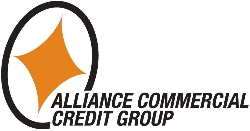While struggling businesses often feel like they’re out of financial options, the good news is that there is more than one way to create cash flow. Factoring is one strategy we utilize to increase a business’ working capitol, often in combination with other tactics.
Did you know that your accounts receivable are a form of collateral you can leverage to gain financing? Factoring (also called invoice factoring or accounts receivable financing) is the purchase of accounts receivable for immediate cash. It involves three parties: the seller (you), the debtor (your client), and the factor. The factor is a third party (credit card companies like Visa and MasterCard are primary factors used) who purchases receivables (your invoices) at a discounted rate from their face value. This provides you with a way to receive payment on that invoice typically within 24 hours instead of waiting the typical 30, 60, or even 90 days. Thus, factoring gives businesses the power to ensure growth without diluting their equity or incurring debt.
Your receivables are sold based on the credit-worthiness of your clients, not your business. This makes factoring particularly useful for business with bad credit. Most factoring arrangements are structured following a general pattern. The factor purchases these invoices for less than what they are worth. This will always be a set percentage amount off the total. A reserve is often withheld from the purchase price of the receivable until the debtor pays the factor, at which point the factor delivers the rest of the payment to the seller. Factors provide services with or without protection from bad debt (with recourse or non-recourse), and with or without disclosure to customers (confidential or non-confidential).
At its simplest, factoring is a way to obtain working capital to put towards other uses in your business such as purchasing new equipment, meeting payroll and tax obligations, generate new accounts, and grow your business.
Factoring is a way to create financing for your business when credit-based options aren’t possible. We have also used factoring for companies that don’t have enough operating history to borrow from banks, as well as rapidly growing businesses that are too leveraged for traditional financing. It can also work well for businesses as a strategy to help manage cash flow. If you are interested in learning more, or want to know how factoring could help your business, contact us to get your questions answered.

